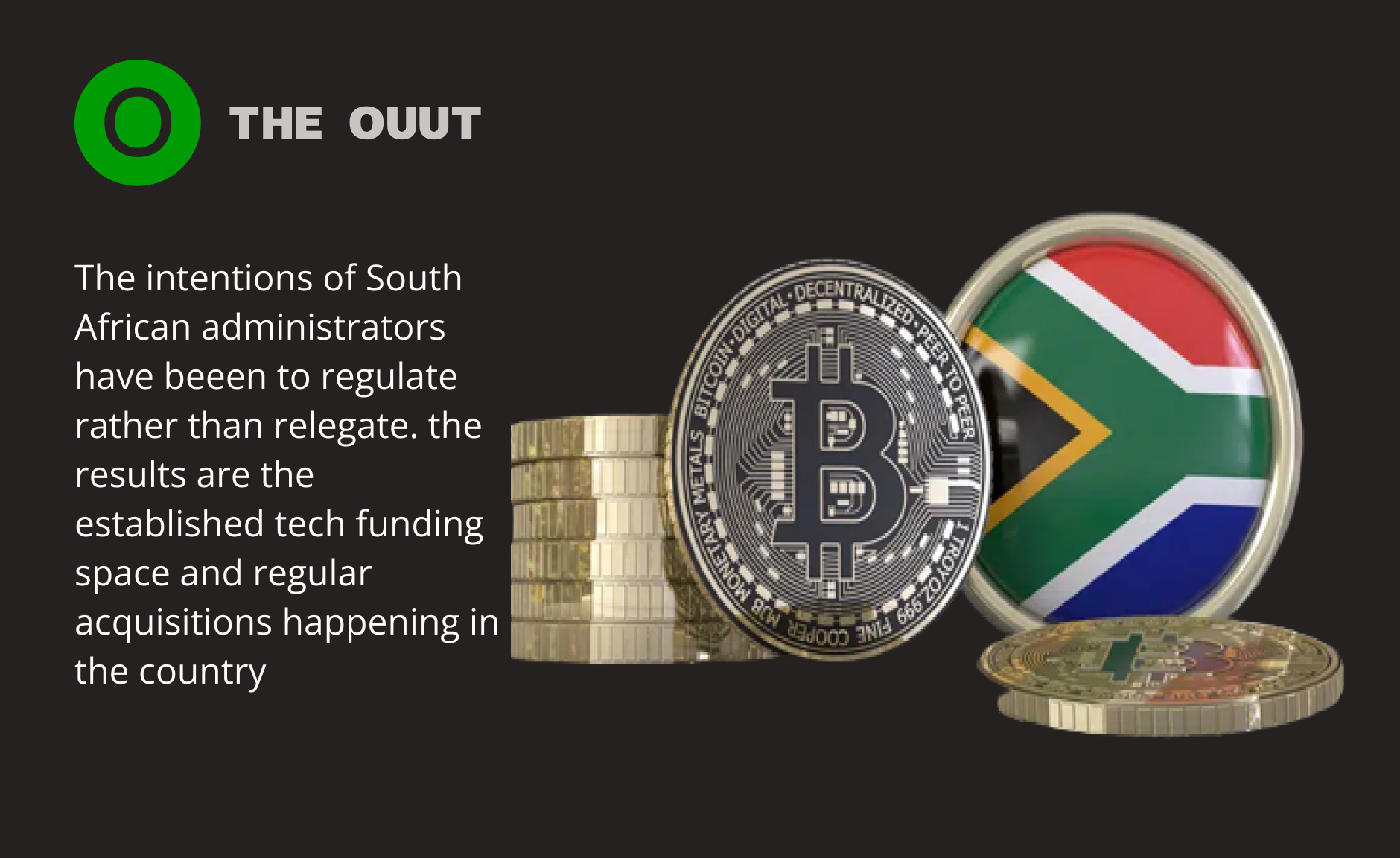How South Africa Raised Over $1Billion Funding in the Last 7 Years

According to Disrupt Africa’s South Africa Ecosystem Report 2022, 357 South African businesses have funded minimum total funding of US$993,684,600, which is only surpassed by Nigeria locations on the African continent. The nation is one of the “big four” locations for investments.
It’s interesting how one may start to envision, even dare to dream, of a whole area of the vast world that is fully powered by tech. The realization of this dream places the worth of services at the core of all efficient deliverables made possible by tech.
The availability of physical and non-physical structures (such as fiber optics, satellite communications, software, platforms, and services, among others) that enable the information technology area is a specific prerequisite for South Africa’s startup ecosystem. Furthermore, it promotes an easily accessible and dynamic information infrastructure and the internet (all necessary to enable effective communication, use, diffusion, and information processing). Here, it is crucial to emphasize the conscious effort taken to create a customized learning path on the already-existing information superhighways that guarantees a goal-oriented objective in mind from the start in South Africa.
In 2021 compared to 2015, 89 South African companies received funding, up from 45. Between 2016 and 2018, the number of sponsored enterprises decreased yearly, but since 2019, the number has rapidly increased. 23 South African businesses have received funding in 2022, but as the year goes on, we may anticipate a significant rise.
South Africa is Africa’s Startup Powerhouse, With The Highest Number of Exits
Maximizing the myriad opportunities in the digital world requires deliberate, cautious policies and plans. However, South Africa is already in the right direction regarding tech startup growth and funding, and they’re not just walking; they are running.
Maximizing for Funding and Foreign Investment
A country’s underutilization of digital technology and lack of solid policy holds it back. However, an infective collaboration between regulators and experts from all sectors and the addition of incentives will attract investments from every investor looking toward tech.
Given the relative ecosystem maturity compared to others and the relative rarity of such agreements in other established markets, it is no surprise that South Africa comfortably tops the continent in terms of acquisitions.
35 South African digital businesses have been bought more than any other nation since 2015. With 22, Egypt comes in second, just over 60% of South Africa’s total, followed by Nigeria with 15 and Kenya with 9. In fact, over the past 7.5 years, Disrupt Africa has tracked one-third of all acquisitions throughout the continent in South Africa, and the country consistently ranks first in terms of the number of successful exits.
The country didn’t just come upon these stats by chance. As a result, administrators have had to strike a balance between regulation and innovation where the government, operators, investors, and other stakeholders would be safe and operate for economic growth, development, and sustenance rather than making policy pronouncements that prevent aspiring digital entrepreneurs from exploring and maximizing the digital space.
South African administrators have intended to regulate rather than relegate. The results are the established tech funding space and regular acquisitions happening in the country.
Why Always Fintech?
Mobile money and cryptocurrency, particularly, have advanced financial inclusion and boosted wealth and accountability throughout Africa.

Although there are nation-specific regulations for fintech, recent governmental crackdowns on cryptocurrency trading have increased calls for an all-encompassing fintech strategy across Africa. However, South Africa is already taking steps to ensure this area is adequately regulated. Recently, deputy governor Kuben Naidoo, the South African Reserve Bank (SARB), announced that the country plans to propose new rules on cryptocurrency trading within the next 12 to 18 months.
With 147 enterprises, fintech accounts for 30% of South African startup ecosystem activity. The preference for fintech is evident, given that this number is nearly three times greater than that of the next-closest competitor, e-commerce. However, this is not unique because most of Africa’s startup groups focus the most on fintech.
Payments and remittances, which include 40 firms and comprise 27.2% of fintech initiatives, are predictably the area with the most activity within the fintech sector.
South Africa outperforms several emerging international markets. Harvard Business Review claims that due to strong consumer demand for digital companies and a supportive institutional environment, the country beats several economies in the Latin American and Asian/Southeast Asian regions in terms of how simple it is to create digital jobs.
